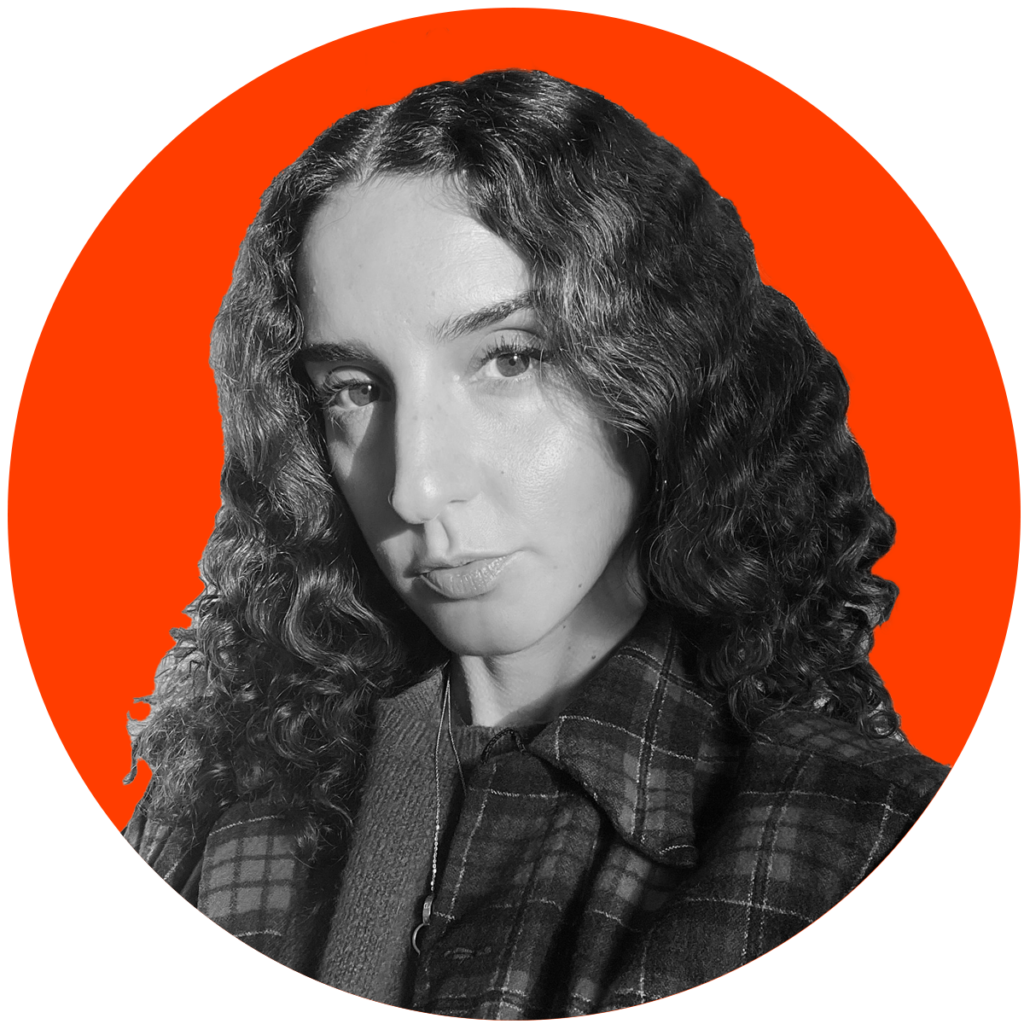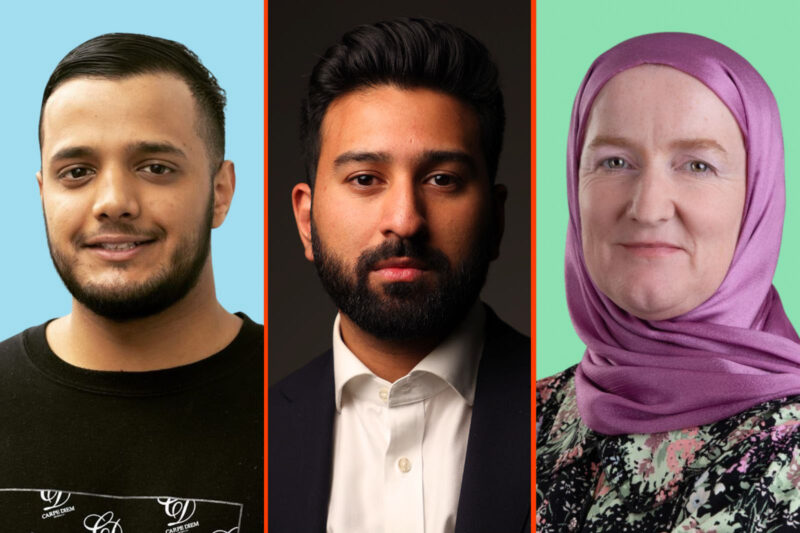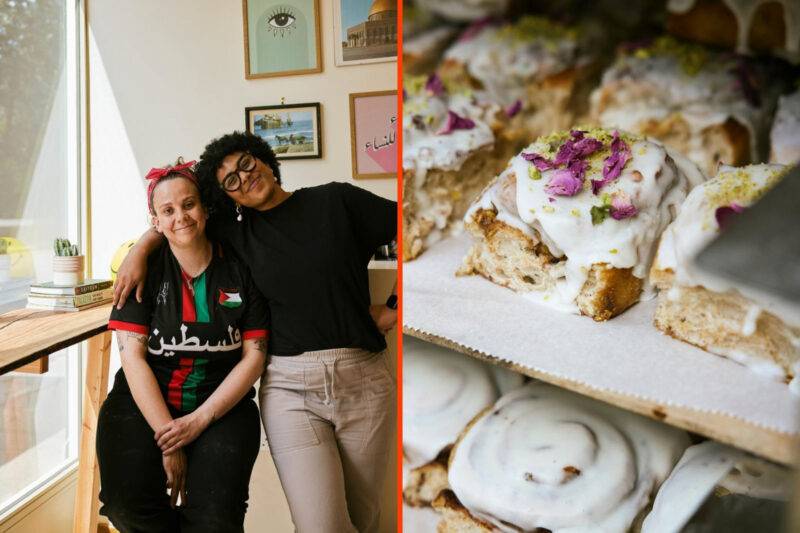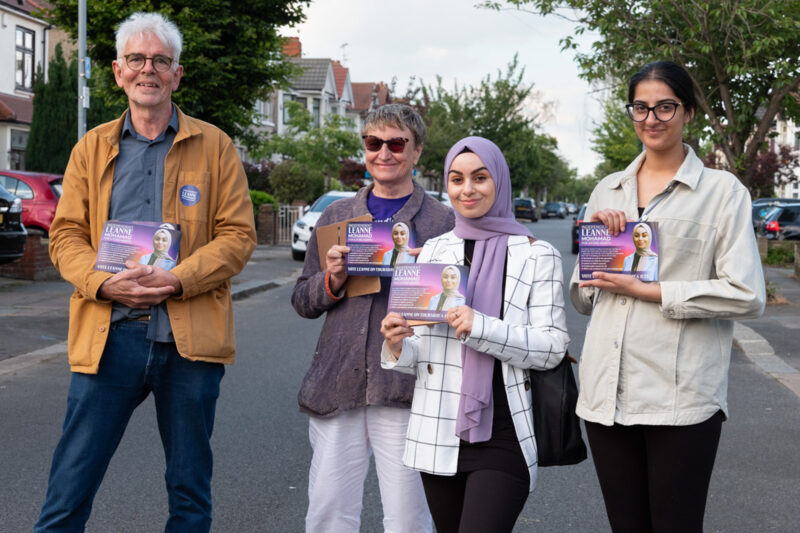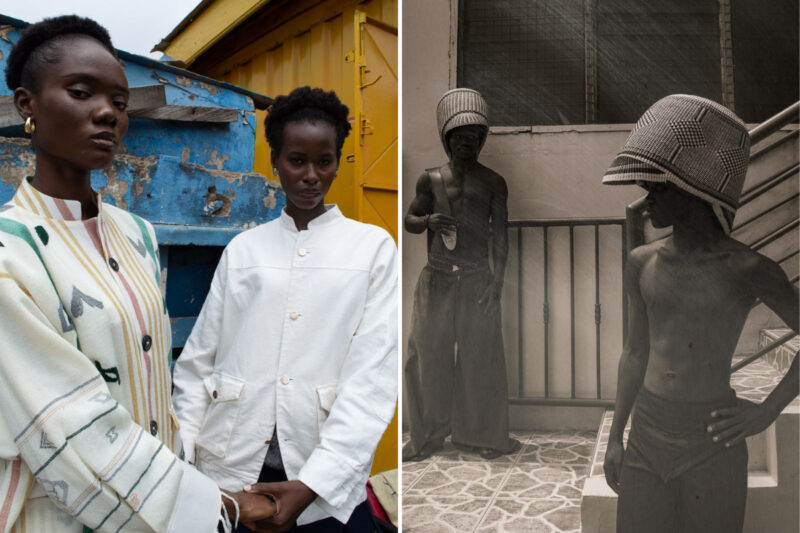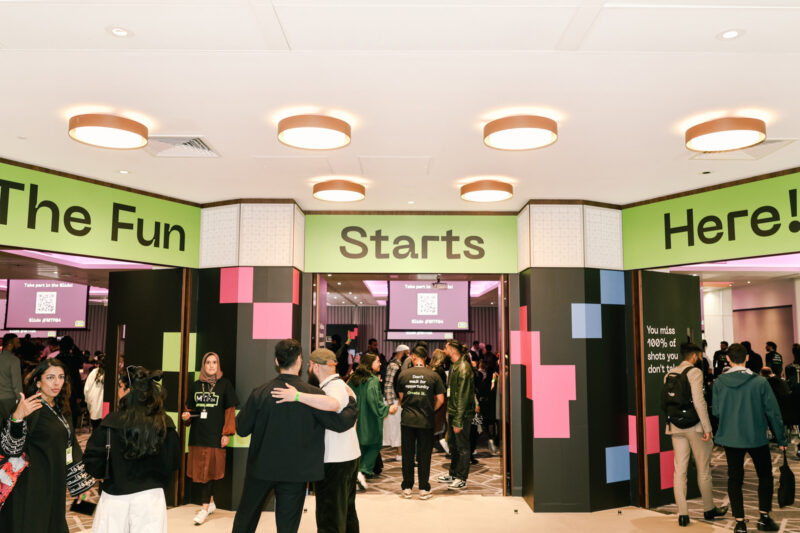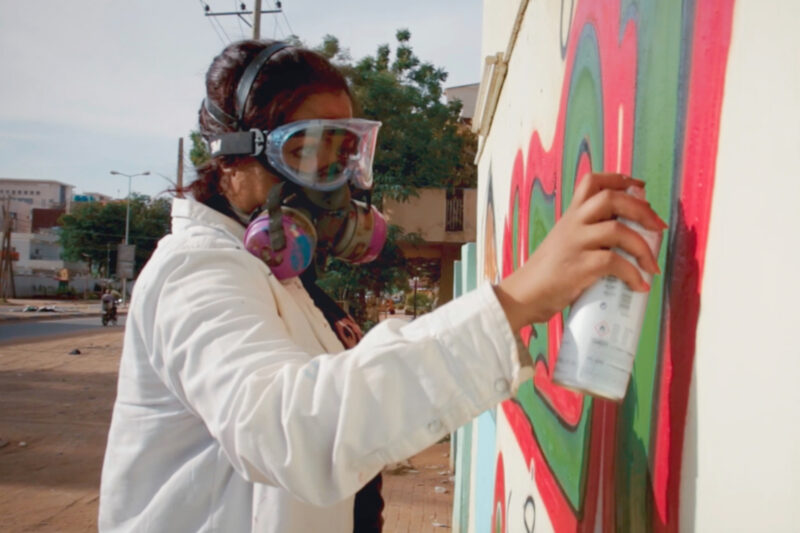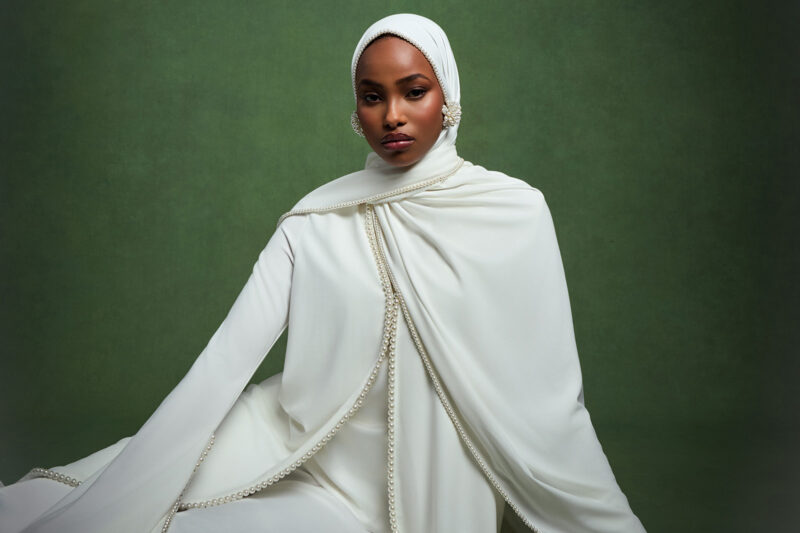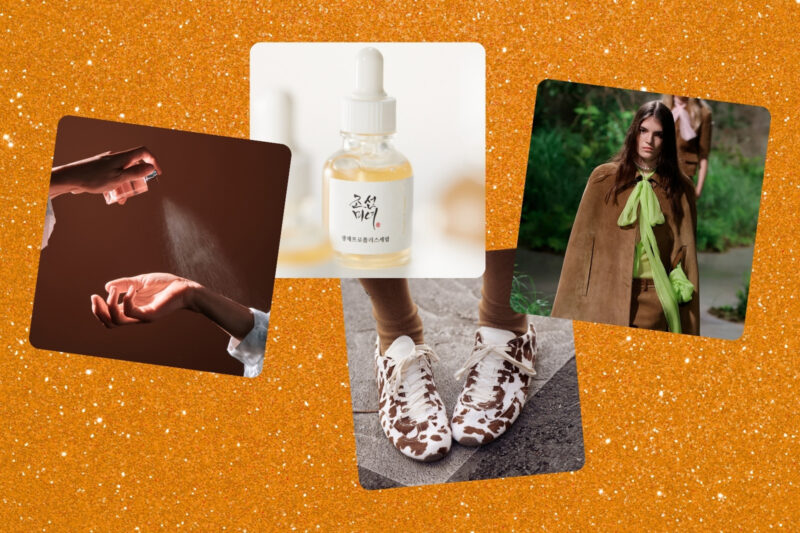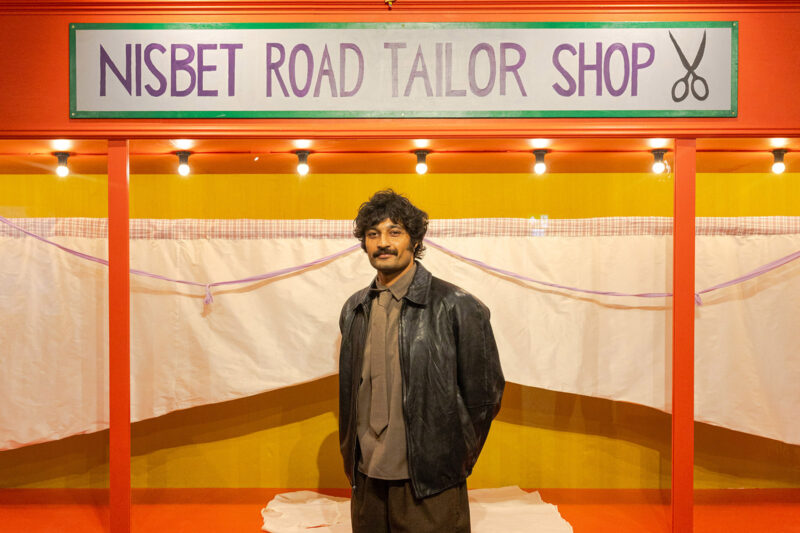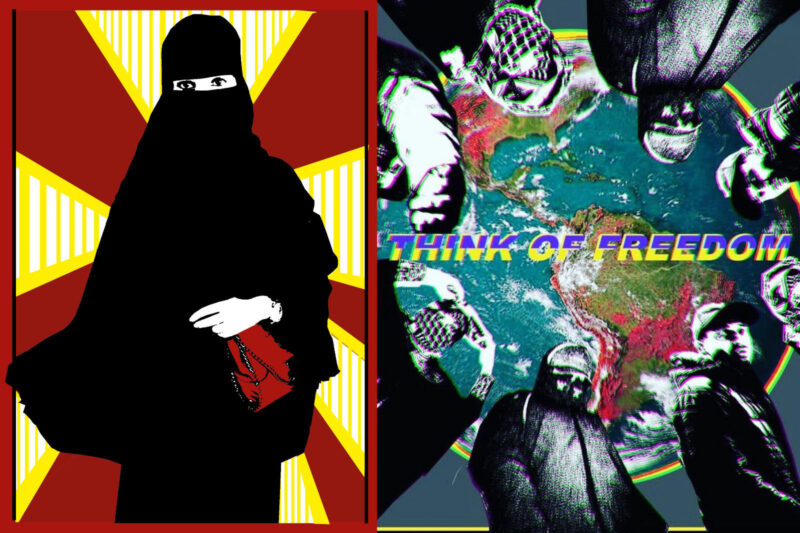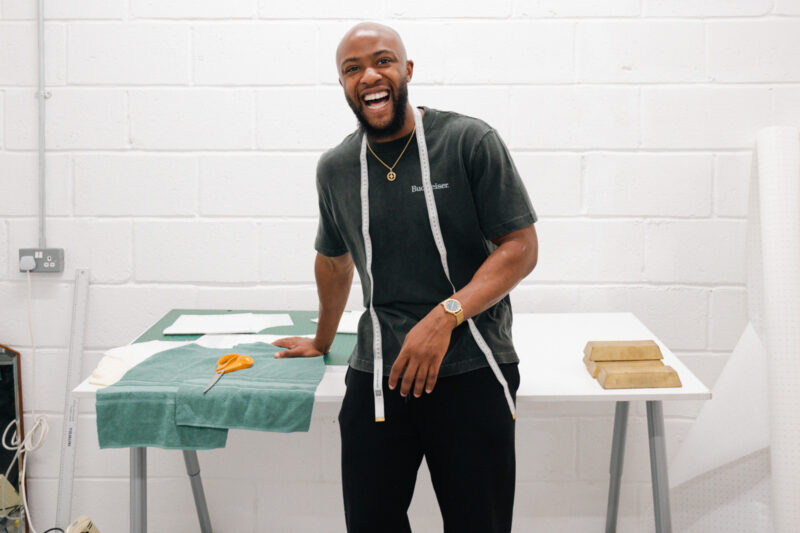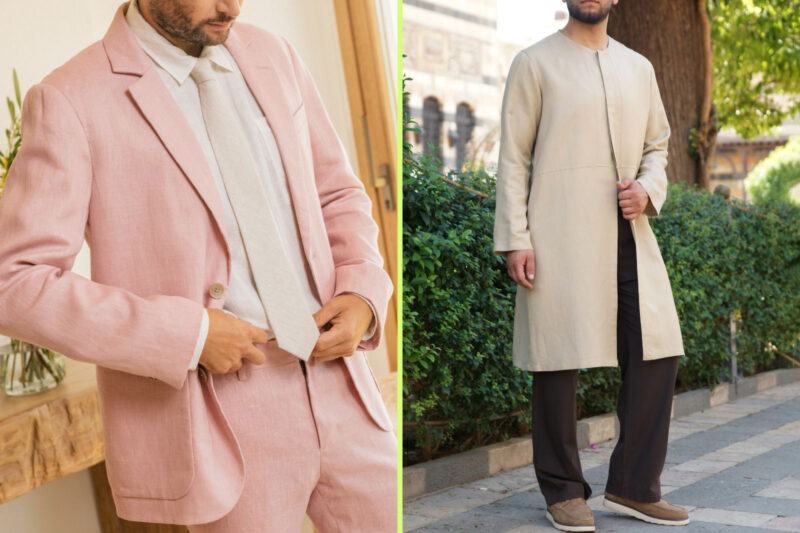‘It is not right to show luxuries when there’s a war being played out in front of our eyes’
British-Palestinian designer Fadi Kazem Sarandah pulled out of London Fashion Week and is withholding his collection until there is a ceasefire in Gaza
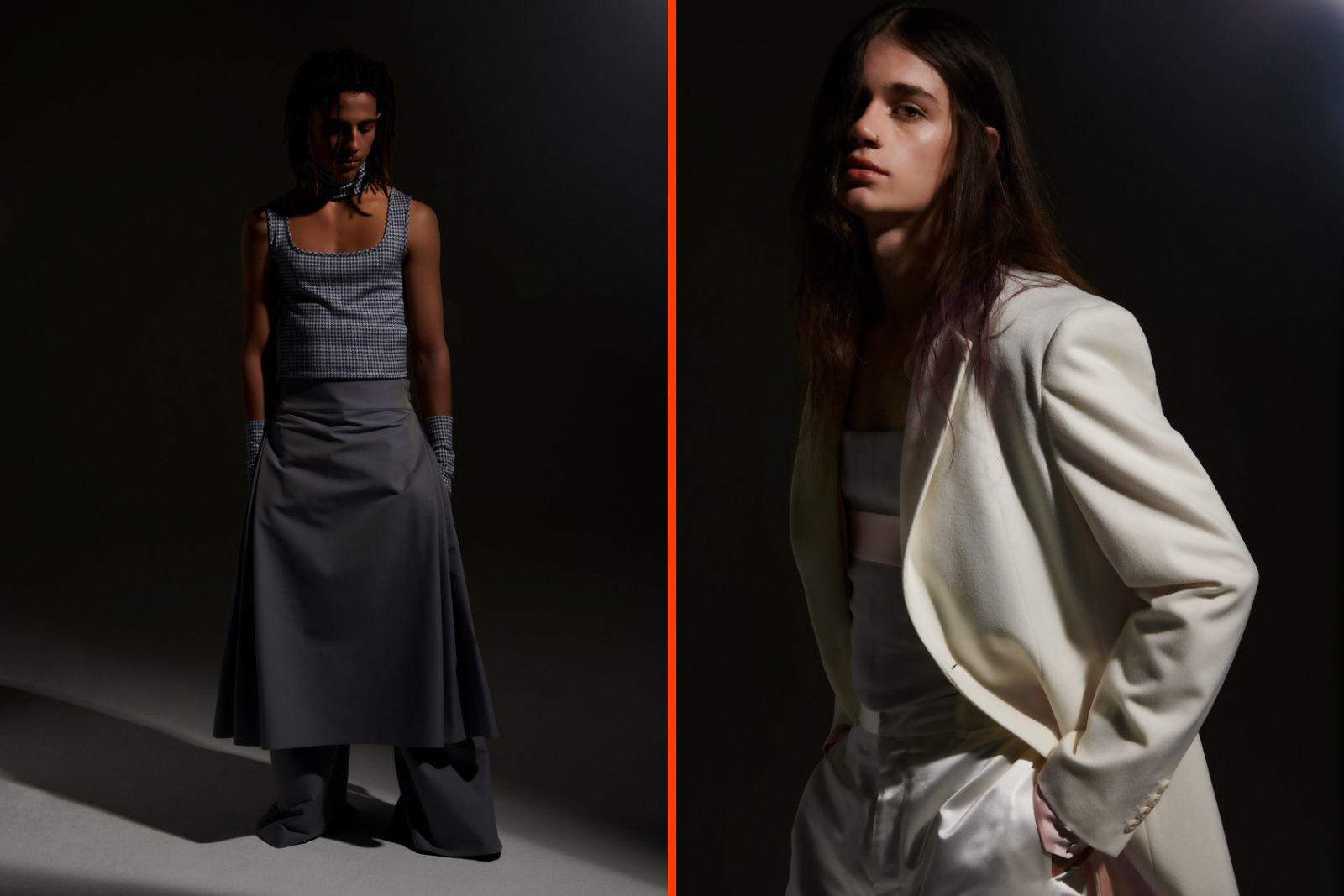
London Fashion Week (LFW) returns on 12 September for its 40th anniversary, celebrating the city’s position as a “world leading cultural capital”. British design heavyweights including Burberry, Simone Rocha and JW Anderson will be showing their latest collections, alongside cult favourites such as Molly Goddard and Dilara Fındıkoğlu. But missing from this year’s showcase for the second season in a row will be Altar London, a menswear brand run by Fadi Kazem Sarandah, a British-Palestinian designer who is withholding his latest collection until there is a ceasefire in Gaza.
“It was impossible for me to talk about or to show a piece of clothing. I just couldn’t bring myself to do it,” he tells Hyphen. As an emerging brand, Altar is usually involved in an LFW press day or private party and viewing, and the collection is then presented on the LFW website. Sarandah declined to be involved this year, and quit social media.
“We’ve seen a war being played out right in front of our eyes. I felt it was not right for me to show luxuries; the topic was just irrelevant,” he says.
Collection A, Arctic, featuring loosely-draped and embroidered suits inspired by both the natural beauty of the area and devastation caused by oil spills, was initially meant to be shown in January 2024, but Sarandah stopped sending clothes to events. “I thought there would be a ceasefire by January, and of course, there hasn’t been. I retreated from showing that season and thought I could make some changes and show it this current fashion week as a SS25 collection. Things are getting worse in Gaza and I stand by my decision.”
Since launching in 2022, Sarandah’s designs have appeared in the pages of Tatler and GQ, exuding a quiet luxury highlighted through his use of fine fabrics such as silk and suiting wools. Bubblegum-hued two-pieces and bright, jewel-toned shirts sit alongside exquisitely tailored suits that are both timeless and quintessentially modern.
Much of his inspiration stems from his love of nature. “I draw attention to a certain feeling or time or place that I think is beautiful. It’s not about how society organises itself — it’s about life, about being,” he says of his creative process.
Sarandah grew up in East Jerusalem before moving to London for his graduate studies in 2000, and while he doesn’t explicitly reference his Palestinian identity in his designs, he believes his heritage translates into his work through his way of looking at the world. “Growing up in a place like that teaches you to have a more forgiving and broad understanding of things. That identification with and compassion for ‘the other’ is ingrained, also because Palestinians are not completely homogenous,” he says.
For Sarandah, his decision to not show at LFW was “heartbreaking”. “But my work is a celebration of life. It’s very personal and it’s based on deep emotional connections. I do not see anything to celebrate at the moment,” he says. “That may well mean business goes down the tubes, but what’s a business when innocent people are being slaughtered?”
As the bombardment of Gaza approaches the one-year mark, boycotting has become one of the most accessible forms of protest against the genocide. In December 2023, the German sportswear company Puma announced it would not be renewing its sponsorship of the Israel Football Association (IFA), after years of pressure from campaigners and long-standing boycotts.
Other major brands listed by the Boycott, Divestment and Sanctions (BDS) movement include Chanel, which purportedly pledged approximately £3m in humanitarian aid to Israel in the wake of 7 October. Meanwhile, Bernard Arnault, the owner of fashion behemoth LMVH, which owns brands including Louis Vuitton, Givenchy, Dior, and Fendi, contributed to a £90m funding round in an Israeli cybersecurity firm in 2021.
Sarandah says there was little reaction from the British Fashion Council in regards to his decision to pull the collection from LFW, reflecting the silence across much of the industry. “I think everybody just turned a blind eye, or it became ideological: do you support the country that’s more western, or the Middle Easterners who are ‘threatening’ the existence of that country? It’s ludicrous.” He mentions the maddening difference in response to Palestine and Ukraine, whose invasion by Russia was met with wall-to-wall outrage and solidarity by the fashion industry. “I think we have come to realise how full of shit we all are,” he laughs. “It’s been eye opening.” Hyphen has approached the British Fashion Council for comment.
Other designers have pulled their collections from fashion weeks as a form of protest for various causes in recent years: Stella Jean, the only Black designer belonging to Italy’s fashion council, withdrew from Milan Fashion Week in 2023 citing a lack of commitment to diversity and inclusion, and in 2019 Rag & Bone pulled out of a New York Fashion Week event due to its host holding a pro-Trump fundraiser.
Fashion and protest have had a long and often messy history. While Vivienne Westwood may have been a rare example of a designer whose politics ran deeper than screen-printed words on a poorly made T-shirt, the co-opting of the aesthetics of protest by the industry has for the most part been an exercise in how the marketisation of activism can dilute its meaning. Take the suspicious stream of watermelon-themed products being pumped out by high-street brands quick to capitalise on public sentiment.
Sarandah has never thought of himself as a particularly political person, and previously regarded fashion as a way of healing from a past spent working in more corporate environments. “I’ve never been an activist nor do I want to be an activist. Being Palestinian and growing up in Al-Quds is exhausting. I support charities and do my bit, but my whole life cannot be about being Palestinian — or so I thought.” But he is in no rush to return to the industry: “I will not go back into fashion when bombs are being dropped indiscriminately over a concentration camp.”
 Newsletter
Newsletter

